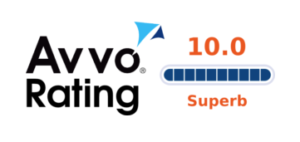



Has Lloyd’s of London Delayed or Denied Your Individual Disability Insurance Claim?
Lloyd’s of London Denial
Lloyd’s of London Appeals
Lloyd’s of London Lawsuit
One marketing tactic that Lloyd’s of London (Lloyd’s) uses to secure new individual disability insureds is promising higher permanent total disability benefit payouts—typically for limited terms—when business professionals and elite athletes need disability insurance. Unfortunately, for some deserving policyholders, Lloyd’s of London may actually do the opposite, delaying, then wrongfully denying valid claims for disability benefits.
On many occasions Lloyd’s disability insurance denial cases became public. Most have heard about the $17.5 million lawsuit brought by Michael Jackson’s estate against Lloyd’s for unpaid disability insurance policy benefits. Another example is Kanye West, who sued Lloyd’s for nearly $10 million in unpaid disability insurance benefits.
DarrasLaw has the experience, skills and unlimited resources to get you the money you deserve, whether it involves negotiation or litigation. We are nationally recognized as the top disability law firm in the United States. We regularly handle high stake claim disputes and appeals involving disability insurance claims from Lloyds. Our disability insurance attorneys are committed to helping people when billion dollar insurance companies wrongfully delay or deny their legitimate claims.
At DarrasLaw, our team of disability insurance attorneys is led by Frank N. Darras, the nation’s top disability lawyer. We have already recovered nearly $1 billion in unpaid insurance benefits—and we can help you litigate or appeal the wrongful denial of your high stake disability case. Call 800-898-7299 for immediate assistance with your delayed or wrongfully denied disability insurance claim.
Table of Contents
Who Is Lloyd’s of London? How Do They Work?
 The syndicates under “Lloyd’s” form the world’s largest insurance market. As its name implies, Lloyd’s is based in London. Unlike its competitors, however, Lloyd’s of London is not actually an insurance company. Rather, Lloyd’s is a corporate body, governed by the British Lloyd’s Act of 1871. This means that Lloyd’s is not a single insurance company, but instead Lloyd’s of London is the name of the corporate umbrella under which various subsidiaries (or “syndicates”) operate. These sub-companies are, basically, individual insurers carried by the Lloyd’s brand.
The syndicates under “Lloyd’s” form the world’s largest insurance market. As its name implies, Lloyd’s is based in London. Unlike its competitors, however, Lloyd’s of London is not actually an insurance company. Rather, Lloyd’s is a corporate body, governed by the British Lloyd’s Act of 1871. This means that Lloyd’s is not a single insurance company, but instead Lloyd’s of London is the name of the corporate umbrella under which various subsidiaries (or “syndicates”) operate. These sub-companies are, basically, individual insurers carried by the Lloyd’s brand.
The differences between Lloyd’s and traditional insurance companies arguably revolve around their structures. Traditional insurance companies are individual entities—providing policies for a group of target customers. As a result, these policies show little variation between individual insureds. Lloyd’s, on the other hand, acts as an insurance stock exchange—a marketplace for buying and selling insurance on virtually any “risk.”
The term syndicate describes the foundation of the Lloyd’s of London model. Syndicates are groups of people or companies who, pursuant to various interests, are willing to collectively fund and write insurance. The individuals in these syndicates are called “members.”
Most business at Lloyd’s is placed through brokers in London and here in the United States. Similarly, prospective policyholders approach brokers and ask them to arrange an insurance contract at Lloyd’s. Brokers at Lloyd’s arrange these insurance contracts through its “slip system” typically.
Simply put, slips function as an insurance write up—explaining the details of the risk that the policyholder wants insured. Syndicates, then, use the slip to determine its attractiveness, and then decide to underwrite a portion of the slip. Ultimately, the syndicate chooses to be responsible for X percent of a given risk. In the event of a disability insurance claim at Lloyds. The members retain an equivalent X percent of the premium for assuming the risk. In the event there is no loss, the syndicate makes money as compensation for its assumption of the risk. In theory, one syndicate could assume 100 percent of a particular slip, and also 100 percent of the premiums. This is rarely done, however, for obvious fears of loss as opposed to profit. The following information from AmWins Group helps to explain this concept further and more precisely:
“When placing a risk within Lloyd’s, the broker can use one, two, or several Lloyd’s syndicates, depending on the requirements of the business. The first syndicate that agrees to write a risk is referred to as the ‘lead’ syndicate. When there is more than one syndicate participating on a risk, it is called a ‘subscription market,’ as the syndicates together subscribe to the contract document, or ‘slip.’ This slip historically contained all the coverage and contract conditions relating to the risk as well as deductibles, premiums, and other connected information about the policy. The policy wording is also included within the slip, which is the first document the claims department reaches for when advised of a new loss.”
What Happens When Lloyd’s Denies My Individual Disability Insurance Claim?
 Because Lloyd’s insurance contracts vary widely between policyholders, and even between a policyholder’s various policies, the slip is crucial. As mentioned, it details information related to filing disability insurance claims and when they are payable—in theory. Generally, filing an individual disability insurance claim through Lloyd’s process involves:
Because Lloyd’s insurance contracts vary widely between policyholders, and even between a policyholder’s various policies, the slip is crucial. As mentioned, it details information related to filing disability insurance claims and when they are payable—in theory. Generally, filing an individual disability insurance claim through Lloyd’s process involves:
- A policyholder files a disability claim form that sets forth the alleged loss
- Then, Lloyd’s assigns the claim an identifier— a Unique Claims Reference (UCR)— and creates a file for the underwriters. This file may consist of electronic or hard copy documents
- The file is then forwarded to everyone necessarily involved—such as underwriters, agents, adjusters, etc.
Despite its differences, Lloyd’s processes mimic traditional insurance companies in that delays can arise and so do wrongful disability insurance claim denials.
Like more traditional insurance companies, common red flags of wrongful disability insurance claim delays, denials and bad faith involving Lloyd’s are:
- Unreasonable delays and repeated requests for duplicative documentation
- Denials unaccompanied by any real medical, occupational or financial justifications
- Failing to make a disability insurance claim decision within a reasonable amount of time
- Failing to relate relevant information to the claimant (or person filing the disability insurance claim), etc.
Example Cases Brought Against Certain Underwriters at Lloyd’s of London
 Remember that Lloyd’s of London is not one centralized entity. Lloyd’s itself never underwrites insurance. The members of Lloyd’s do that instead. This means that when customers bring suits against it, the suits actually target certain underwriters who are materially involved in the particular matter. This also means that Lloyd’s of London policies may use standard terms and conditions, like other large insurance companies do or write coverable or insure amounts traditional American insurance companies wouldn’t.
Remember that Lloyd’s of London is not one centralized entity. Lloyd’s itself never underwrites insurance. The members of Lloyd’s do that instead. This means that when customers bring suits against it, the suits actually target certain underwriters who are materially involved in the particular matter. This also means that Lloyd’s of London policies may use standard terms and conditions, like other large insurance companies do or write coverable or insure amounts traditional American insurance companies wouldn’t.
Terms and conditions will vary by contract. Still, courts view these unique contracts in the same way that it would a standard form—and, in some cases, these unique contract terms are binding because they are tailored to the parties involved, and then agreed upon. This means that courts are likely to enforce them as fair contracts that a party cannot alter just because it changes its mind or chooses not to abide by the policy’s terms. A court will look to what the contract says, and whether the alleged conduct (if evidenced appropriately) constitutes a breach according to the contract’s language. Gaining insight into what courts have said about some previous contractual disputes may provide insights into your particular situation.
Because features, advantages, policy terms, limitations, and exclusions vary widely among policies, reviewing the disability insurance denial cases brought against Lloyd’s of London may provide insight into how DarrasLaw can help you fight back and win. The case below is illustrative.
Certain Underwriters at Lloyd’s, London v. Cohen
Underwriters at Lloyd’s of London brought this suit against Dr. Max Harry Cohen, seeking a declaration that they properly rescinded his disability insurance policies. The magistrate judge held that Dr. Cohen made material misrepresentations on his policy applications and so granted summary judgment to the Underwriters. The U.S. Court of Appeals for the Fourth Circuit reversed and remanded.
The Underwriters argued that Cohen provided materially false answers to three questions on his policy application:
- “Are you actively at work?” (To which he answered “Yes”)
- “Are you aware of any fact that could change your occupation or financial stability?” (To which he answered “No”)
- “Are you a party to any legal proceeding at this time?” (To which he answered “No”)
Under some state laws, a material misrepresentation on an insurance policy application justifies the rescission of a policy issued on the basis of that application. The court involved in this case made the following determinations:
Insurance policies, like other contracts, must be construed “as a whole to determine the parties’ intention.”…. Policy terms are given “their ordinary and accepted meanings,” and “[the test is what meaning a reasonably prudent layperson would attach to the term.”….
Policy language is ambiguous, if it is “general” and “suggest[s] two meanings to a reasonably prudent layperson.”….
[We] can only conclude that each of the questions to which Dr. Cohen allegedly gave false answers is subject to more than one reasonable interpretation, and so is ambiguous.”
The court went on to determine that:
1. The question “are you actively at work?” was ambiguous because of the many possible interpretations of what it means to be “actively at work.” Dr. Cohen’s interpretation was simply more expansive than Lloyd’s.
2. Dr. Cohen maintained that he was actively at work during the suspension both because he was a licensed surgeon in the District of Columbia and because he continued to perform duties related to his Maryland practice, including administrative work, research, and professional development. Dr. Cohen asserted that, during his suspension, he often arrived home from being “at work” in the office after midnight.
3. The second question to which the magistrate judge found Dr. Cohen had provided a false response—“Are you aware of any fact that could change your occupation or financial stability?”—Was also ambiguous.
4. The underwriters contended that financial stability referred to an applicant’s active income, not net worth, since disability insurance protects only active income. Because Dr. Cohen was suspended from performing his daily duties of surgery in Maryland, according to the Underwriters, he was no longer a surgeon and so lacked active income. As Dr. Cohen notes, however, his Maryland suspension was temporary, and because he could still practice in the District of Columbia while suspended in Maryland, his occupation as a surgeon was not in danger of changing. Furthermore, the application did not define financial stability or provide any guidance on how an applicant would determine whether his financial stability could change. Financial stability is a broad term that could refer to net worth, and the record indicates that Dr. Cohen’s net worth apparently increased during his suspension.
5. Finally, the underwriters maintained that Dr. Cohen’s answer of “No” to a third question—“[Are] you a party to any legal proceeding at this time?”—Was also materially false. The magistrate judge did not address whether Dr. Cohen falsely answered this question because the judge concluded that the question was ambiguous. On appeal, the judges for the Fourth Circuit agreed.
The appellate judges wrote, “The language of each question at issue here is ambiguous. Each of these general questions contains undefined terms susceptible to more than one reasonable interpretation, making them ill-suited to elicit the specific type of information the Underwriters claim to have requested.”
*The case language above, and more, is found here.
The Fourth Circuit ultimately reversed and remanded the lower court’s finding in the underwriter’s favor. Here, the case turned on the clarity of the policy’s terms, conditions and ambiguous application questions. Experienced top-rated disability insurance claim attorneys can help you to figure out whether, like Dr. Cohen, your policy’s terms are vague and ambiguous—if so, a court that may award you more relief than you could imagine. Please call DarrasLaw today.
Don’t Cower at a Lloyd’s of London Individual Disability Insurance Claim Denial Letter
 Although not technically an insurance “company,” Lloyd’s of London’s disability insurance denials can often follow similar patterns as other individual disability insurers—to delay, deny, or undervalue disability insurance claims. At DarrasLaw, our top-rated disability insurance lawyers can handle your disability dispute with Lloyd’s of London stemming from:
Although not technically an insurance “company,” Lloyd’s of London’s disability insurance denials can often follow similar patterns as other individual disability insurers—to delay, deny, or undervalue disability insurance claims. At DarrasLaw, our top-rated disability insurance lawyers can handle your disability dispute with Lloyd’s of London stemming from:
- Policy issues, including interpretation of Lloyd’s of London policy exclusions, mental/nervous limitations, definition of “own occupation” and “any occupation” as well as pre-existing conditions
- Medical records, including Independent Medical Exams (IME), Functional Capacity Evaluations (FCE), attending and treating physician statements, Lloyd’s of London medical reviewing consultants
- Privacy matters, including private investigators and surveillance
- Follow-up documentation, including proof of employment, employment file requests or Lloyds of London claims that requested claim materials were never sent or received
- Delayed processing of legitimate disability insurance claims, including unjustified delays in benefits determinations and wrongful delays in paying claims
- Termination of disability insurance benefits, including unjustified termination and termination for late or missed premiums
Our Lloyd’s of London disability insurance claims lawyers at DarrasLaw review thousands of disability claims each month. We know what new and old tactics Lloyds of London is using to delay or wrongfully deny your individual disability insurance claim.
Don’t Throw It Away—Keep All Documentation!
If certain underwriters at Lloyd’s of London delay or deny your disability insurance claim, keep (or retrieve) copies of all correspondence between you and them whenever possible. If you cannot find all of the documents that you think are relevant, do not despair. Find what you can, make note of the documents you remember submitting but can’t locate, and save everything moving forward.
Examples of pertinent documents include:
- Any documents providing additional information that Lloyd’s requested or that you voluntarily sent to document your disability insurance claim (like medical documents provided by your treating doctor that support your claim).
- If your disability insurance claim was already denied, a copy of the denial letter
- Notes and dates from as many phone and email conversations as you had with Lloyd’s representatives—or any other relevant professional—relating to your delay, denial, or appeal.
- A copy of your appeal, if applicable
How Do I Afford a Top-Rated Bad Faith Disability Insurance Lawyer or ERISA Attorney?
 At DarrasLaw, we take all of the disability insurance claim denial cases that we choose to represent on a contingent fee basis. This means that you do not pay us up front. We do not collect fees, unless we get results.
At DarrasLaw, we take all of the disability insurance claim denial cases that we choose to represent on a contingent fee basis. This means that you do not pay us up front. We do not collect fees, unless we get results.
We cover all up-front costs associated with your case—including medical evaluations and investigations. We hope to help as many disabled people from all across America as we can. This contingent fee arrangement helps us ensure more people who need an experienced disability insurance lawyer, or ERISA attorney, can get one.
Contact DarrasLaw for Immediate Help With a Lloyd’s of London Denial
Top-rated trial lawyer Frank N. Darras and his team handle a wide spectrum of high-stake disability insurance claim denials, from thousands of dollars to claims worth multiple millions. We have an unmatched track record of forcing Lloyd’s of London underwriters, to fulfill their contractual obligations.
As the leading disability law firm in the nation, the disability insurance attorneys of DarrasLaw have taken on large disability insurers, and we have gone head-to-head with Lloyd’s of London to secure the disability compensation you deserve. We are fully committed to our mission: to serve the disadvantaged and disabled by ensuring that they receive what their insurance companies rightfully owe them in a timely, good faith manner.

We offer free consultations and work with claimants nationwide when Lloyd’s has unfairly delayed or denied disability insurance benefits. Please call our law firm today if you feel Lloyd’s—or any other insurer—is unduly delaying or denying your valid disability insurance claim. Our seasoned and compassionate disability insurance lawyers have the skill and experience to take on large insurers at the negotiating table and, if necessary, in the courtroom. If you are considering applying for a permanent total disability or a disability contract paying high monthly benefits with Lloyd’s of London, contact our law firm for a free policy analysis. We also provide free claim advice and help with denials and appeals.
Call us at 800-898-7299 or contact us at DarrasLaw online.






